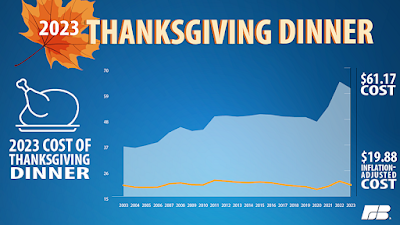(cont'd from yesterday's post)
It's no small thing to trace the making of the common pencil.
A child could tell you about its parts. But when you think about what it would take, no individual person could actually create a pencil or even knows how.
You'd have to find a cedar on the west coast of the U.S., take it down, transport it to the mill--using saws and rope and equipment and trucks--which would have to be created from hemp that you grew in a field and metal that you mined from underground.
A lot of people at the lumber mill manage cutting the logs until they're in 1/4" strips, which are kiln-dried and tinted and waxed which requires belts and motors which require heat and light and power which require the hydro-electric plant which required the men who poured the concrete . . . It's endless.
No master mind organizes the creation of a pencil. But millions are created . . through the mutual cooperation of millions of workers . . who don't know the others in the process or where their product is going.
Our economy is almost miraculously run by skilled and creative people acting freely for their own benefit.







